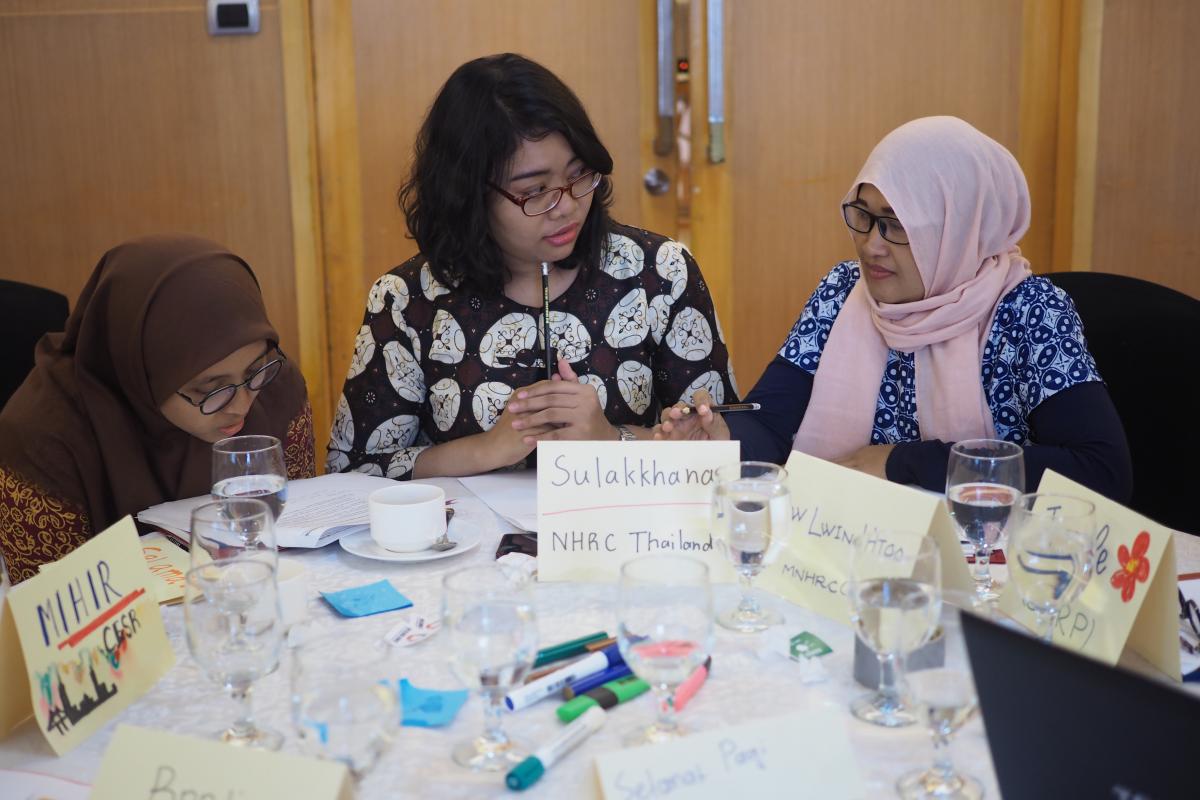 May 11, 2018
May 11, 2018
What tools do human rights activists need to better understand, and, more importantly, tackle, the unjust socioeconomic structures that cause so many of the world’s human rights violations? The Center for Economic and Social Rights is excited to embark on a new project over the next six months—the OPERA House—that seeks to answer that question. We believe it’s a project that can only succeed if it’s carried out collaboratively and reflects diverse input, so we’re inviting anyone with an interest in OPERA get involved in the project, including by participating in a short survey about OPERA.
The aim of the project is to help us rethink the approaches we employ to support activists using OPERA, the economic and social rights monitoring framework designed by CESR and developed over the years in close collaboration with partners across and beyond the human rights movement. Recent blog posts provide further background on OPERA and explain in more detail the goals of the new project.
For those not already familiar with OPERA, it is a framework that groups together relevant human rights standards and principles into four dimensions: Outcomes, Policy Efforts, Resources and Assessment. By providing a broad list of questions, OPERA helps design metrics to measure each dimension more systematically. As well as identifying what questions need to be answered, it also suggests various tools and techniques for how to answer them. Although, importantly, these can be adapted to different contexts.
Our first publication on OPERA came out in late 2012, though it has roots in CESR’s earlier pioneering research. Over the past five years, we’ve shared OPERA with hundreds of activists and practitioners from civil society organizations, national human rights institutions, United Nations mechanisms, and international NGOs. Through our innovative collaboration model, we’ve accompanied partners as they’ve used it. We’ve developed training curricula and additional learning resources on OPERA, as well as the tools and techniques associated with it. We’re also aware that many others beyond our immediate partners are applying and referencing it in their work.
Through this work, we’ve observed a real collective appetite for approaching advocacy-oriented research more strategically, and for developing and deepening practical skills to support such research, including for effective use of statistics, budgetary analysis and data visualization, among others. To meet that demand, we want to expand OPERA so it will support robust research that can provide a basis for creative, compelling advocacy on entrenched violations of economic and social rights. Achieving that goal means making our resources on OPERA and its related methodological tools more accessible for a broader audience, available in different languages and more responsive to the diverse set of activities being undertaken by civil society groups working at the local, national, regional, and international levels. It also means building stronger relationships of support, solidarity, and learning among activists using OPERA. The question this project explores is how best we might do so.
We will adopt a consultative, inclusive approach to the project, based on human-centered, co-design principles. That means deep diving into research that encourages collective brainstorming on open-ended questions, allowing us to learn directly about what is really needed from the activists whom OPERA is ultimately serving. In so doing, our hope is to build up an invested community of collaborators who will be actively involved in the eventual design of resources on OPERA.
We’re planning a series of collaborative activities over coming months, which, combined, create a process that is flexible, yet rigorous. This engagement will involve a mix of targeted outreach with organizations we already engage with and open calls for expressions of interest from organizations we could build new engagements with. We’re interested in talking to people who only know a little about OPERA, as well as those who know a lot.
The findings of this research will be written up and shared widely, through a discussion paper and a series of reflective blogs. We’re setting up an OPERA House mailing list for sharing details about the community calls, further information about guest blogs, and updates about the survey and interviews. Thoughts, suggestions and questions on any aspect of this project or CESR’s work in this area are also welcomed on the mailing list or by emailing opera@cesr.org.
Related: